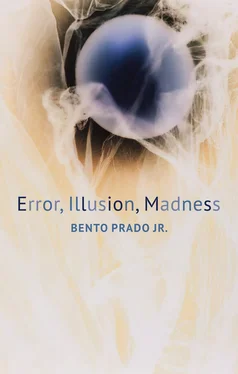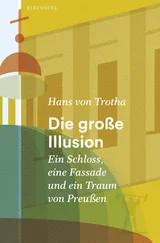This game of territorial scrambling is more than the musings of a contrarian spirit. It is a reminder that most of the styles we call national are probably no longer sustainable as such by dint of actually being the anomalous cultural constructions of local bourgeoisies that, from the nineteenth century onwards, sought to justify their control and economic frontiers by creating the illusion of an organic arrangement of ideas and forms that would provide the privileged expression of the “spirit” of a people whose natural place was the nation-states, then in the process of consolidating their identity. Philosophy was not immune to this dynamic of tradition creation. Thus the country of Siemens, metallurgy, and the Ruhr also required a “made in Germany” that consisted of Grund (ground), the illusion of a continuity between Meister Eckhart and Hegel, and a Kantian moral philosophy that, at least according to Marx, was the desperate effort to turn the economic and political impotence of its bourgeoisie into a cult of good will; it needed all these just as much as it needed a music in which depth was conveyed through the symphonic game of contrasting characters.
All this takes us to the question, what good is there in insisting on the existence of national philosophies today, and in whose interest is this done? Do they really serve the purpose of describing the play of forces immanent in singular philosophical experiences, which take place through the refusal of tradition rather than respect for it, through improbable leaps that bind what previously did not go together—as in Deleuze and his “tradition” made of the Englishman Hume, the Frenchman Bergson, the Dutchman Spinoza, and the German Nietzsche? Or are they good only for reasserting the existence of a spirit whose purpose is solely to give a semblance of organic meaning to the institutional monstrosity that is the nation state—with its intangible, immaterial counterpart, “national culture”?
It is with questions of this nature in mind that we can measure the extent of Bento Prado’s innovativeness. Instead of trying to affirm some kind of national specificity or situating himself within some historically constituted philosophical lineage, Bento insisted on thinking without a place. That is, he insisted on a mode of thinking that has an ear for resonances to which the filiation of projects and traditions has made us deaf; a mode of thinking without regard for the limits that adherence to a lineage imposes on us. One’s distance from the centers that produced the texts that came to compose the philosophical canon, one’s decentered position vis-à-vis their geography, these features were experienced not as banishment or expatriation but as the opportunity to listen without bounds. Here the peripheral position is no longer a deficit but a singular potential.
In Bento Prado’s hands distance is no longer a failing, a lack of fiber (as the cliché of Brazil as a country lacking moral fiber often has it), but the condition for the exercise of a movement that demands continuous flows of translation, the reconstruction of problems in a language that is not the one in which they were originally posed. As if it were only possible to think by translating problems in an errant language—“errant” not in the sense that it is wrong or off course, but insofar as it results from errancy, from a displacement akin to the one that Samuel Beckett imposed on himself when he decided to write in a language other than his own.
We should be careful, however, not to miss the most important wager—frightening for some, unacceptable for others—that this operation presupposes. What Bento Prado’s thought suggests is that, if the place of thought is the collapse of place, if its geography is the abolishment of spatial limits, this is because every true exercise of thought allows itself to be carried along by an experience that is common, yet has no language of its own: a common background that is Grund as much as it is Abgrund (abyss). This reverses the poles on the horizon that seemed to furnish the normative conditions of our thought. There is no common grammar that could turn all traditions into an emulation of the same set of problems, a sort of philosophical Esperanto. Nevertheless, every specific grammar is traversed by that which it cannot fully apprehend and which produces experiences that lead to categorial metamorphoses. Bento Prado’s wager was that thinking should start from this movement of traversal, of facing up to this common that does not have its proper language but reveals itself in the chiasma between things that could be considered incompatible (just as Deleuze and Wittgenstein could be judged incompatible). At the end of the day, however improbable that may seem, this was the best possible answer to the question of what it means to do philosophy in Brazil. It was this answer that Bento Prado transmitted to us.
A common place without a proper grammar
Perhaps this can help us understand why one of the fundamental axes of Bento Prado Jr.’s intellectual trajectory was the philosophical decision not to suspend the essential ties connecting subject and reason, even after all the critiques of the subject that twentieth-century philosophy rehearsed. This decision is one of the main reasons for the originality of his approach, as it runs against the grain of the most important trends in contemporary critical thought; and its consequences remain unexplored. Ultimately, Bento Prado Jr. took his place alongside those minoritarian currents within contemporary philosophy that tried at once to produce a reflection on the subject that staved off any kind of return to a metaphysics of identity and to resist conceiving of difference as an irreducible dispersion in which no kind of mutual implication could exist—in which subjects would never know any kind of “transformation through contagion” and would never undergo change under the effect of events external to them.
Thus, far from a constitutive subjectivity that constructed the world from within representative thought, far from a self-identical substance that would ground its normativity on processes of self-legislation and self-jurisdiction, the subject is, for these minoritarian currents to which Bento Prado belonged, a system of reflexive implication in otherness or in what decenters it. In other words, there is in the category of subject a constitutive reflexivity, but it is not a simple expression of my possession of objects, or a categorial projection of my understanding onto the world. Reflection must be freed from the figures of proprietary consciousness. Instead, one must conceive of it as a form of contagion that connects us to what resists subjection to the subject as a center. It is as if this were a matter of drawing the broader philosophical conclusions from an observation on Brazilian culture made by one of its sharpest interpreters, Paulo Emílio Salles Gomes: “We are neither Europeans nor North Americans. Lacking an original culture, nothing is foreign to us because everything is. The painful construction of ourselves develops within the rarified [ sic ] dialectic of not being and being someone else.” 2Where we thought we were dealing with matters quite free of cultural context, we suddenly discover questions that are profoundly rooted in an indirect belonging to the peripheral condition and imbued with a vision of something that only becomes possible in some other territoriality.
Let us keep this kind of connection in mind when we read such statements as:
Between the Cartesian formulation of the cogito , the articulation of the meaning of Ich denke in the refutation of idealism in the first Critique , the Nietzschean demolition of that very cogito , the psychology of William James, and the “private language” argument, a whole history of categorial metamorphoses takes place. 3
Читать дальше












